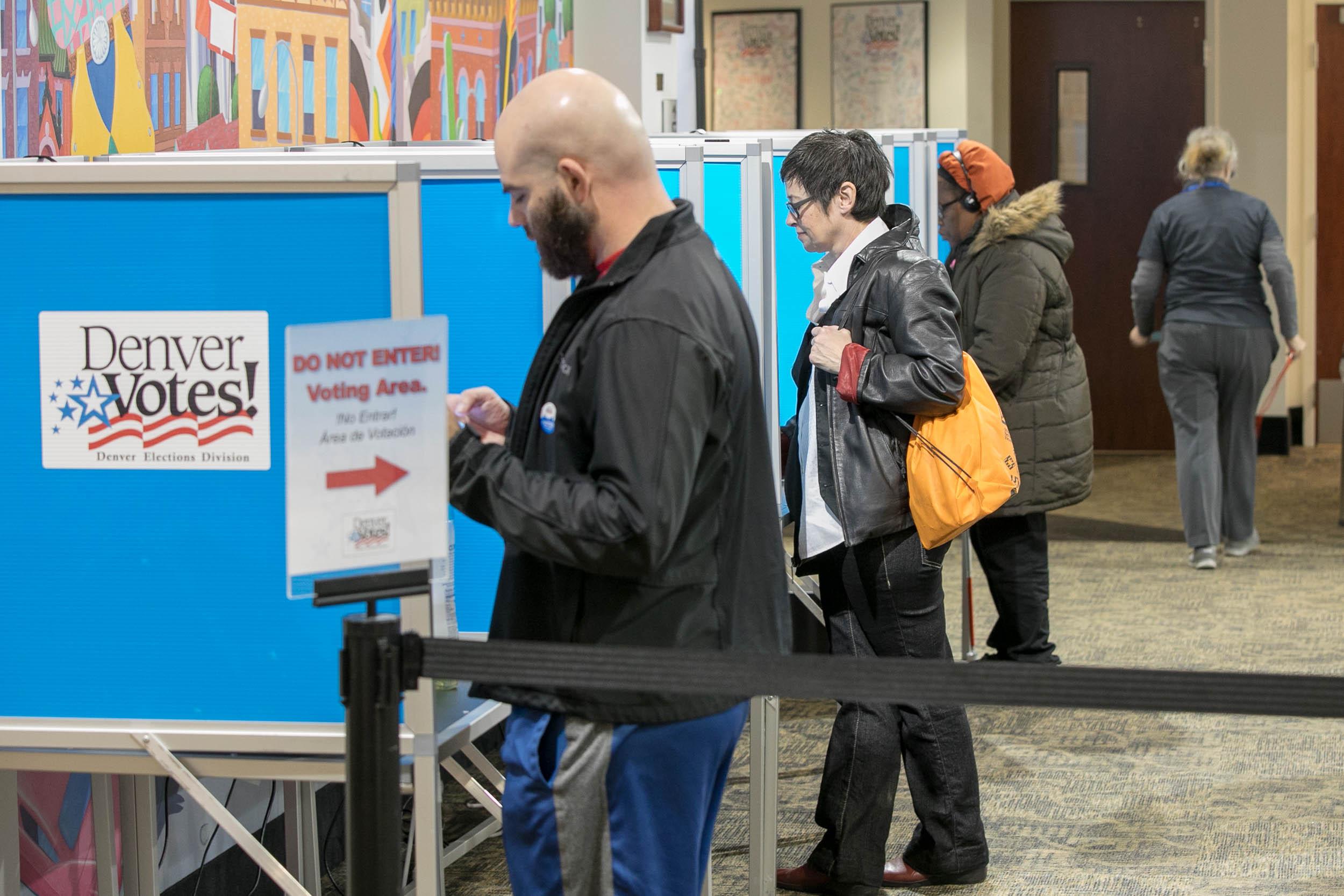
Colorado’s ballot for the primary election on June 30th is officially set, wrapping up a series of legal disputes among both Republicans and Democrats over which candidates' names should go before voters.
The unprecedented social disruption caused by the COVID-19 pandemic led several candidates to argue for more flexibility in getting on the ballot. But as of now, the courts have not agreed to loosen any legal requirements.
“I am no longer on the ballot for the primary election this June 30th,” said Democratic Senate candidate Michelle Ferrigno Warren in an email to supporters after the state Supreme Court ruled against her. “After 9 incredible months, bringing important issues to the platform of the US Senate race, I must end my bid.”
Ferrigno Warren’s case was perhaps the most high profile. She only turned in around half the necessary 10,500 valid signatures, collected across Colorado's seven congressional districts, to qualify for the Senate ballot. But she sued to be added to the ballot, arguing it was impossible and unsafe to gather the signatures amidst the COVID-19 pandemic. A Denver judge agreed and ordered her, and two other candidates with too few signatures, including Senate candidate Lorena Garcia, to be included on the ballot.
Those rulings were overturned earlier this week by Colorado’s highest court, which found that Colorado’s signature requirements aren’t flexible.
Garcia tried to take her case to the federal courts, but after her request for a preliminary injunction was denied the state finalized the ballot without her name on it. She said the COVID-19 pandemic effectively ended her campaign.
“I wasn't even requiring my staff to continue if they didn't feel safe,” Garcia said. “And so it just got to the point where we lost about two thirds of our volunteers, and those last two weeks and we did everything we could. And I'm still extremely, incredibly proud of my team and of the volunteers that turned out and sacrificed a lot.”
Democratic voters will choose between former House Speaker Andrew Romanoff and former Gov. John Hickenlooper in the Senate primary.
“The Colorado Secretary of State's office recognizes the challenges coronavirus has presented candidates in gathering signatures. However, it is ultimately the responsibility of the Secretary of State's office to execute the laws of Colorado, as affirmed in the decisions made by the Colorado Supreme Court and Federal District court,” said a spokeswoman for Secretary of state Jena Griswold.
Virtual assemblies also challenged
The candidate controversies haven’t just been around signature gathering. The pandemic ramped up just as both parties were going into a season of local assemblies, another route for candidates to secure a primary slot. With large, in-person gatherings banned, organizers had to quickly set up on-line equivalents. The at times ad hoc process left some candidates deeply dissatisfied with the process.
For Republicans, those concerns ended up in court, with a dispute over which names should be on the primary ballot for state Senate District 10 in Colorado Springs.
Republican Rep. Larry Liston overwhelmingly won the district’s assembly with 75 percent of the vote. The other contender in the race, Dave Stiver, failed to reach the 30 percent threshold to qualify for the ballot. But the state party concluded there were enough problems with how the online assembly was conducted that Stiver should also be included on the ballot.
The matter went before around 200 officials on two of the party’s leadership committees, and led to a tense phone exchange between Eli Bremer, the party official who conducted the assembly, and the state GOP chair, Congressman Ken Buck, as first reported by the Denver Post.
“After hearing testimony from both sides, the two committees voted to assign Mr. Stiver to the June primary ballot after finding many irregularities in the SD10 Assembly process,” said Colorado GOP spokesman Joe Jackson. “Chairman Buck simply asked Mr. Bremer to acknowledge that he understood what the final decision of the committees was and that he abide by that decision.”
Bremer balked though when told to submit an affidavit to the Secretary of State attesting that both men had qualified for the primary. Another local official, Karl Schneider, filed a lawsuit trying to ensure Stiver would not be placed on the ballot.
“This case raised an important issue as to the extent of party control over the nomination process,” said former Republican Sec. of State Wayne Williams, who represented Liston in the case. The Denver court agreed Stiver should not be added to the ballot. The GOP and Stiver appealed the decision but the State Supreme Court let the ruling stand.
“When the law says you must meet a certain threshold, you must meet a certain threshold. That’s useful for courts and candidates going forward,” said Williams. “Ultimately the courts are saying bright line rules mean something.”
State parties do have discretion to resolve organizational disputes and run the assemblies but the Court concluded that discretion has limits. For his part Liston is relieved to not have a primary challenger.
“I earned my victory. Suffice to say, I feel very, very vindicated and honored that I won it fair and square despite my own party working against me.”
The Colorado Republican Party stands by its effort to try to add Stiver to the primary ballot.
After the historic challenges that faced candidates trying to get on the ballot this summer, only 18 of the 83 state legislative seats up for election will involve a primary for one or both parties. And in the U.S. House races, only CO-3 on the Western Slope will have a primary. Incumbent Scott Tipton faces a Republican challenger, restaurant owner Lauren Boebert. And two Democrats will face off to take on the Republican winner, former state lawmaker Diane Mitsch Bush and businessman James Iacino.
CPR's Caitlyn Kim contributed to this report.









